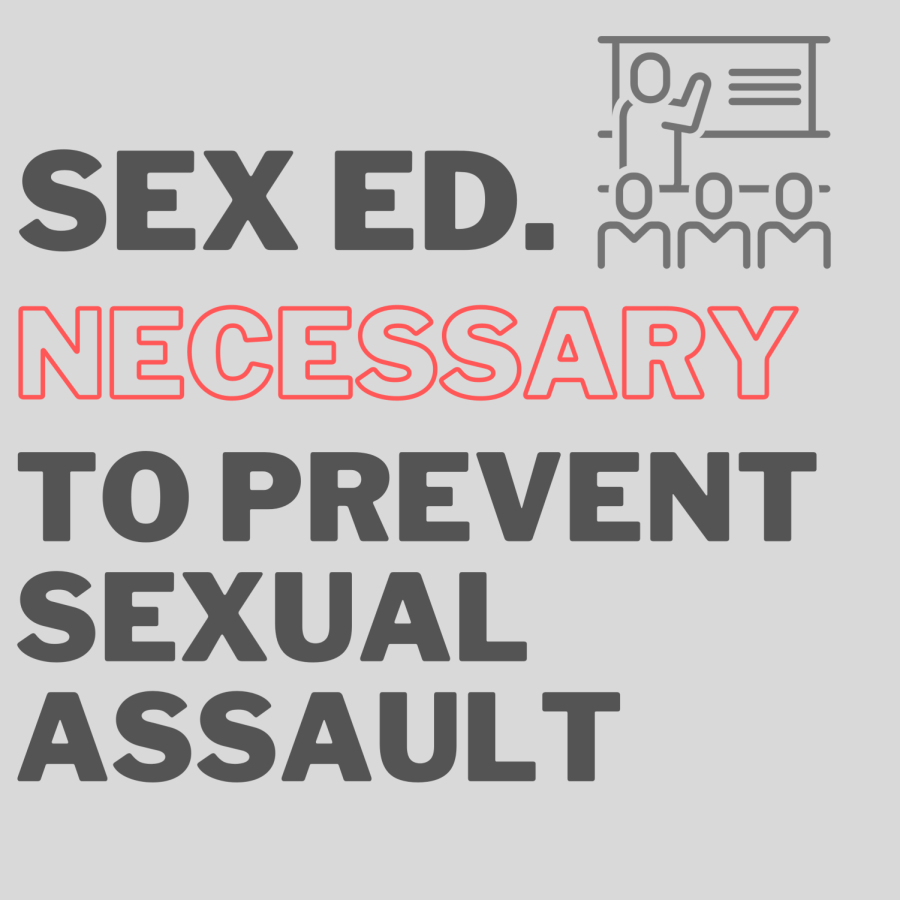Sex ed. necessary to prevent sexual assault
May 9, 2022
This previously ran in our April 2022 print issue.
April is here, also known as Sexual Assault Awareness Month, and something that needs to be addressed is the lack of sexual education students receive in school.
According to the Rape, Abuse, and Incest National Network (RAINN), on average 463,634 rape and sexual assault cases are reported each year in the United States. This number could be lowered if students learned about consent and the mental effects of being a victim from an early age.
Sex education is not a course that is required in all 50 states across America. Very few states have it as a required class, and even fewer talk about sexual assault and consent. Sexual assault and rape are something that is not taken seriously enough, and many people see them as a joke, which is extremely damaging to victims.
Sexual education should be taught in all schools with a mandatory lesson on assault. There should be a lesson on sexual assault and consent in health class, if not a whole new sexual education course. As stated by the State Policies on Sex Education in School, out of the 50 states in America, 30 have sex education as a required course for students. Eight of those states have lessons on sexual assault.
The average age for females to start puberty is age 11, while for males it’s age 12. At that age, young teens are already thinking about sex; maybe not having it, but indeed thinking about it. If these young kids are going to start having sex, they won’t know anything about it, if they are not taught. According to the Center for Family Justice, one in four women are assaulted every year as well as one in six men. The CDC states that more than half of the number of teenagers in America have had sex by the age of 18. If they start having sex without learning anything about it, they may not even know what consent is. With that, they wouldn’t be able to ask for consent either or know when to stop.
If children start learning about sex and consent at an earlier age, rape cases will go down tremendously. Children should be required to learn about sex when they start puberty, around the age of 11 or 12. Some may say that is “too young,” but sex is something that is a part of life. It is something that needs to be talked about to young children so that it is engraved in their minds as they grow.
Some people may be getting assaulted or assault- ing someone with- out even realizing it. Nobody is ever too young to learn about the extremely damaging physical and mental effects of being assaulted.
Again, according to RAINN, 94% of women who are raped experience PTSD from the assault; along with that, depression, anxiety, and other mental disorders can come from being assaulted. If kids were receiving a sexual education by the age of 12 and continued to learn about it every year, this could be completely avoided. Kids need to be taught that when someone says no, they mean no. Asking for consent is something that is required when having sex. If one is responsible enough to have sex, then they are responsible enough to ask for consent.










